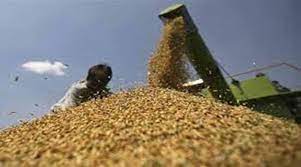New Delhi, May 14:Flour millers’ association RFMFI on Saturday welcomed the government’s decision to ban wheat exports, saying this will prevent “unnecessary panic” in the market regarding domestic supply and also help in controlling any price rise.
Roller Flour Millers Federation of India (RFMFI) President Anjani Aggarwal said the association had written to the government to regulate exports. “It is a very good decision by the Government at this stage, as this will prevent unnecessary panic in the country about wheat supply and prices.”
He said the wheat production in the 2021-22 crop year, ending June, is likely to decline at 95-98 million tonnes.
“The country would have to import wheat after a few months if exports were not banned,” Aggarwal said.
He said the prices of wheat and wheat flour will be stable now.
Atta (loose) prices are ruling at Rs 26-28 per kg, while packaged Atta prices stood at Rs 28-30 per kg.
“The prices of atta could have risen to Rs 40 per kg or even more. Prices will stabilise now,” he said, while justifying the government’s decision.
India has banned wheat exports with immediate effect, as part of measures to control rising domestic prices, according to an official notification.
However, the export shipments for which irrevocable letters of credit (LoC) have been issued on or before the date of this notification will be allowed, the Directorate General of Foreign Trade (DGFT) said in a notification dated May 13.
“The export policy of wheat is prohibited with immediate effect,” the DGFT said.
The government has revised downwards the estimate for wheat production by 5.7 per cent to 105 million tonnes in the 2021-22 crop year ending June, from the earlier projection of 111.32 million tonnes, as the crop productivity has been affected due to the early onset of summer
India’s wheat production stood at 109.59 million tonnes in the 2020-21 crop year (July-June).
The country exported 7 million tonnes of wheat during the last fiscal. India was looking to export 10 million tonnes of wheat this fiscal year on rising global demand amid war between Russia and Ukraine. (PTI)


